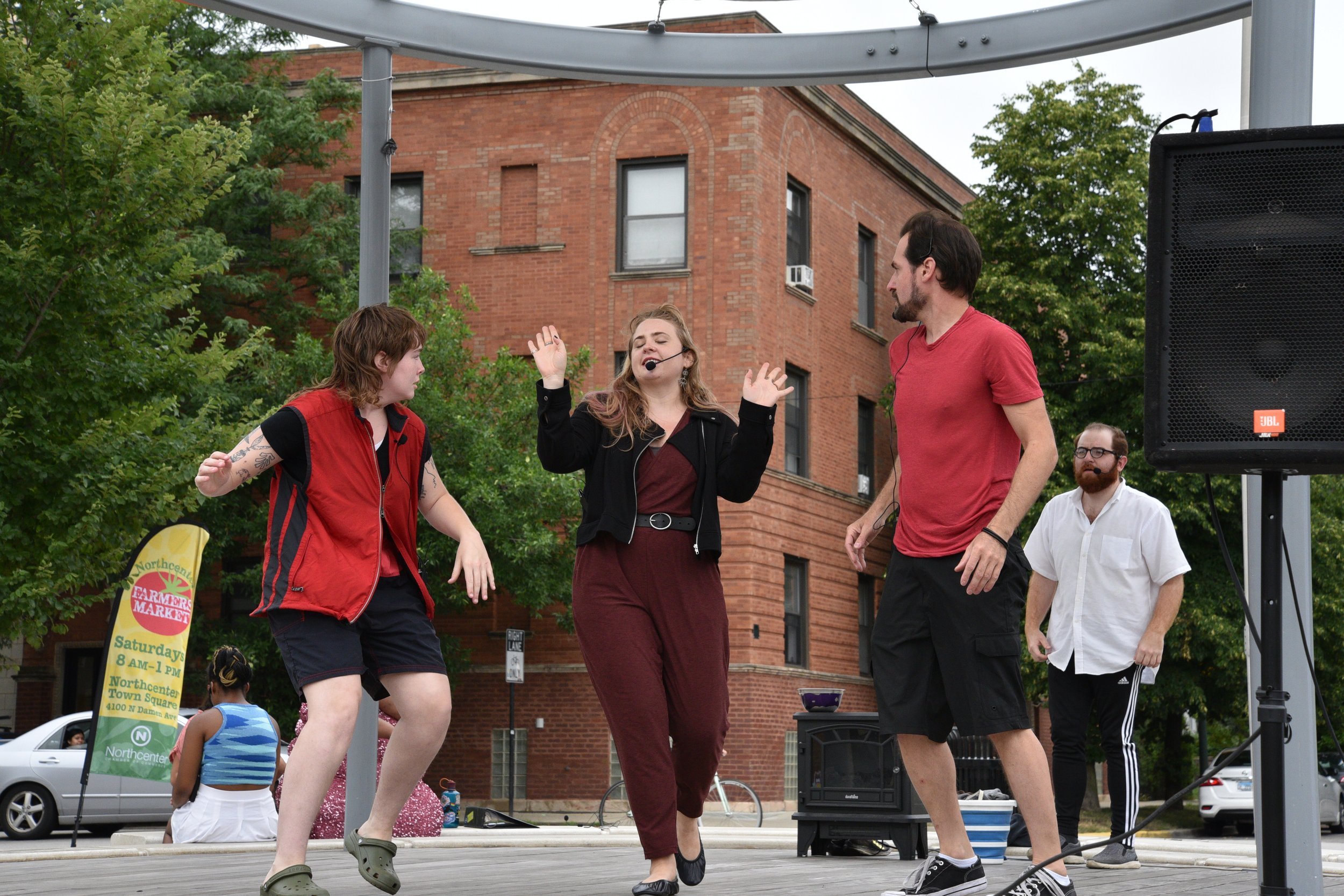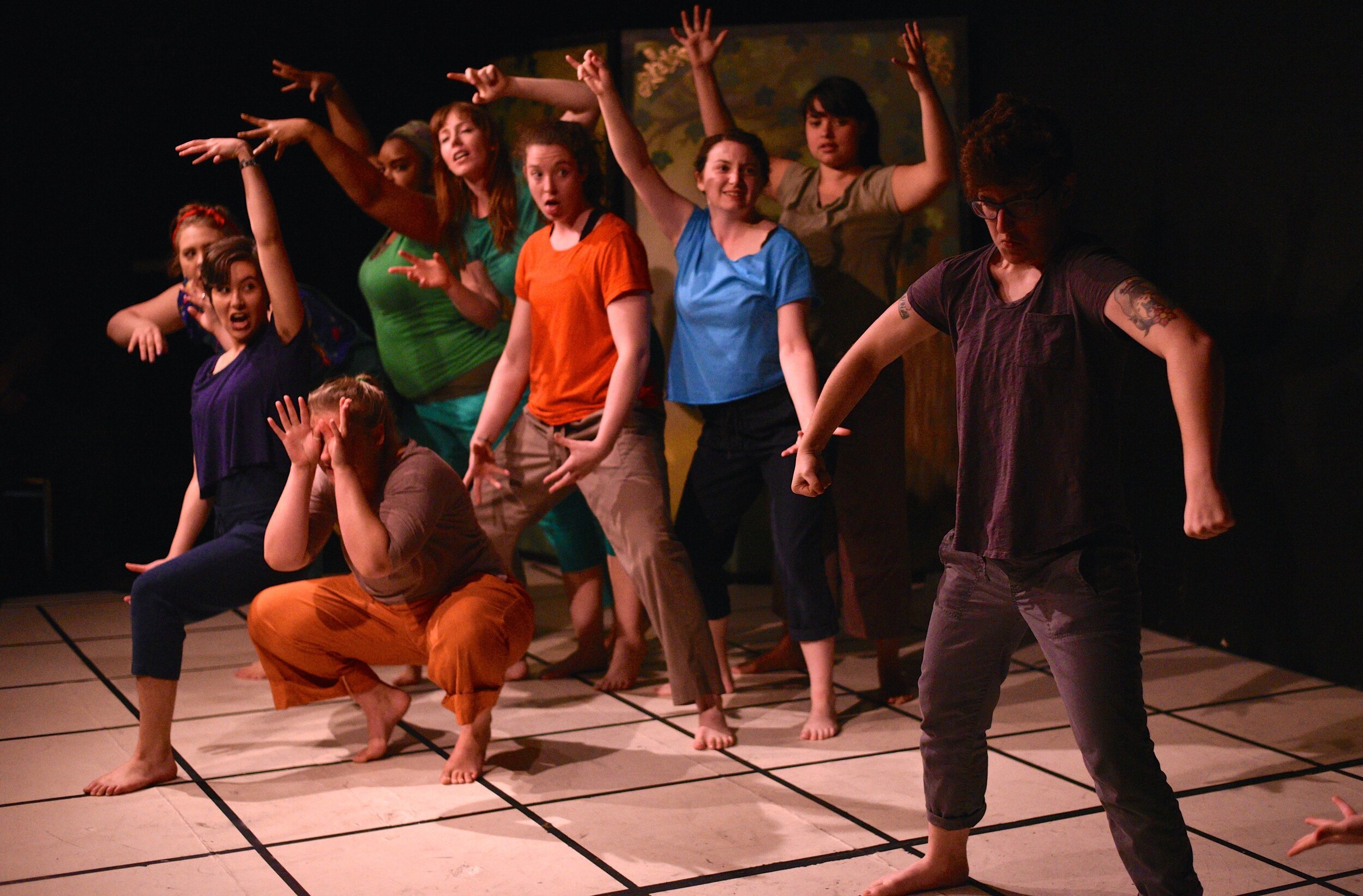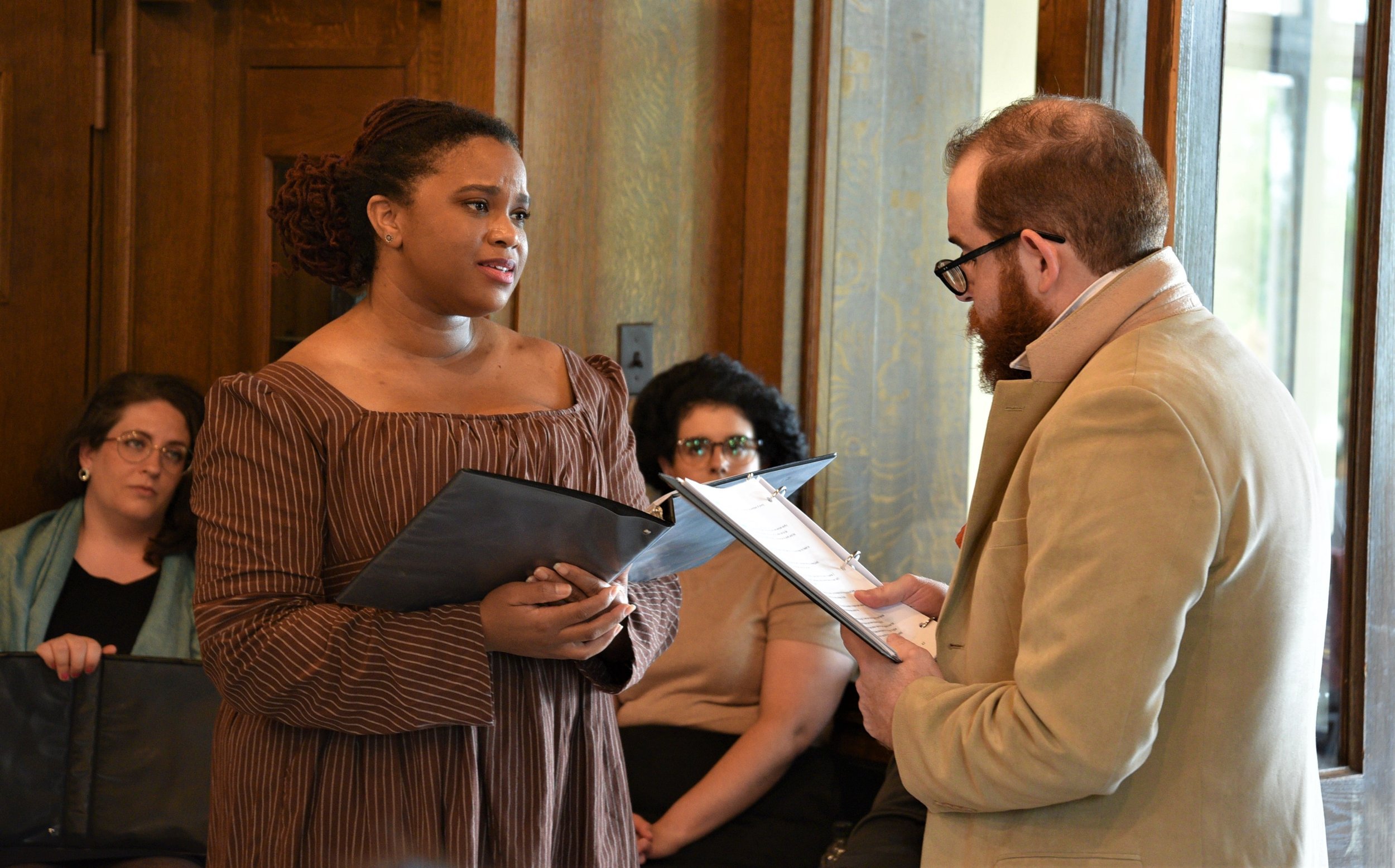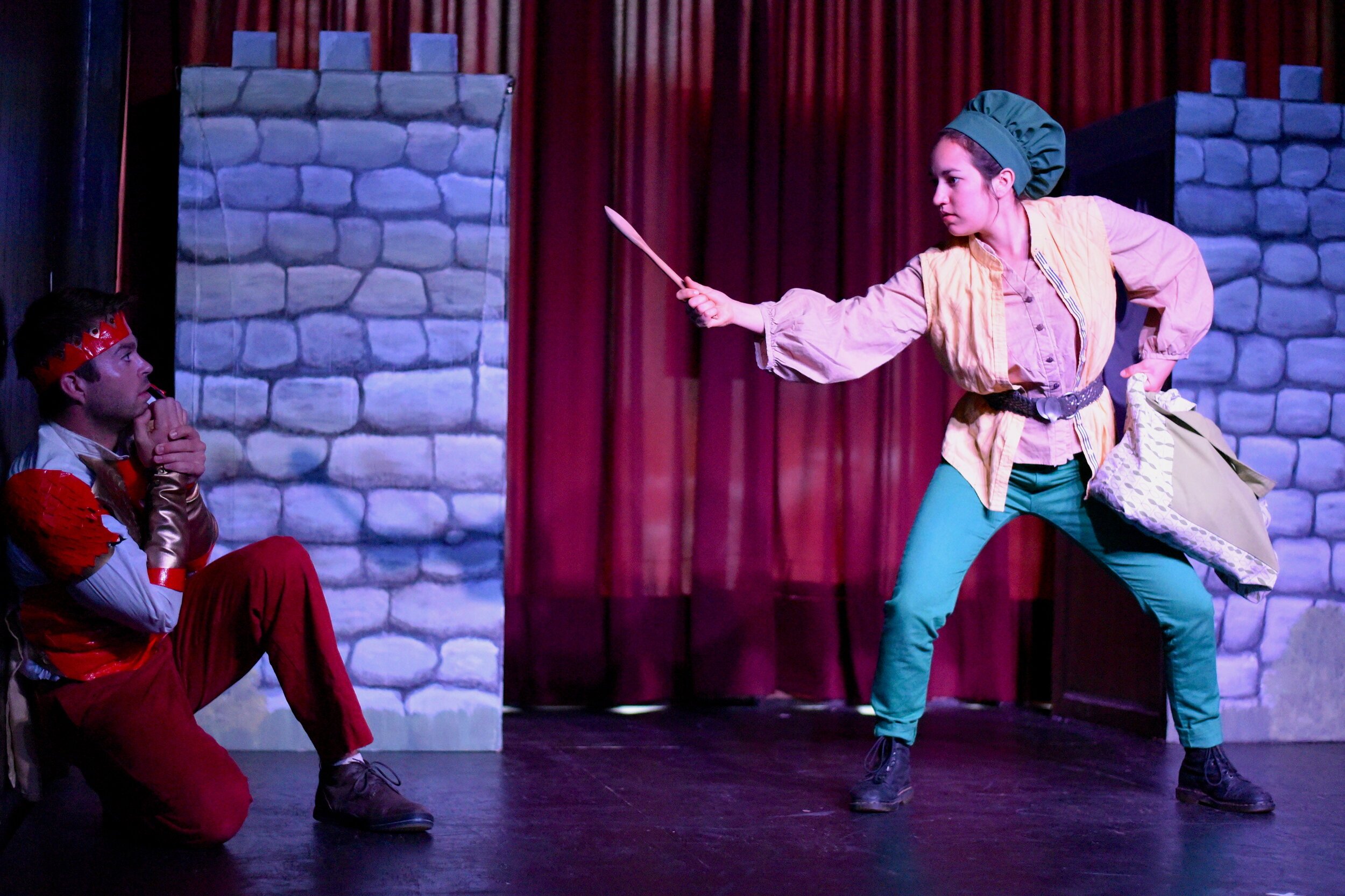Ghostlight Ensemble
Ghostlight Ensemble specializes in immersive theater experiences, performing shows in site-specific and non-traditional spaces. The company has 14 ensemble members and performs a variety of shows including full length plays, children’s productions, and live readings.
Maria Burnham, Ghostlight Ensemble's Communications Director, was interviewed by DePaul College Prep student Ivy Frater as part of our Member Spotlight program.
1. What type of shows do you usually perform?
We do a pretty wide range of shows. We’ve done some older shows that have been reimagined for the modern day, original works, and some newer shows as well - it just depends on what the company as a whole is interested in. We try to do shows that make people think about an issue of the day, challenging the status quo. We also do programming for young audiences.
This fall, we're planning to do a full length show – our first since the COVID-19 pandemic. For fun, as a fundraiser, we also do a series of Live Movie Readings. We take movies, we get the scripts, and we perform them live. There's usually only one rehearsal, so the actors aren't memorized: they're reading the dialogue.
2. What's the process like, preparing for a show?
First, we pick a script. Then we put together a production team. There'll be a director and a stage manager. Depending on the needs of the piece, because we do site specific productions, sometimes we don't need a set designer. But sometimes we do need a set designer, a costume designer, and a sound person. Lighting is not always necessary, because we'll use the natural lighting of the venue we're in. Other than that, you could need a fight choreographer, an intimacy choreographer, a dramaturg...it just depends on the need of that production. You get that team together first, and then hold auditions.
A lot of the time, the director will already have some people in mind for the cast - we try to use as much of the ensemble as possible in a production and take that into consideration when we're picking scripts. After auditions and callbacks, we start the rehearsal process, which takes place several times a week for about a month. The production team figures out the blocking, which means they put together the way that the actors are going to move across the stage. They practice memorizing the lines, obviously, but also the interaction between the characters, and building those relationships.
The week before a show opens, we have technical rehearsals, called Tech Week. That's when we make sure everything is working together, the cast starts wearing all their costume pieces, and we bring in the lights and sound. We usually have a property person who makes the props or sources them. We usually have a dress rehearsal/preview where we invite people, usually people we know. We get a little feedback that way, if things need to be adjusted before the opening night, then we open and we have the run of the show. And that varies in length as well, depending on what we're doing.
3. How many performances on average do you do a year?
Our season usually runs from roughly September of one year to the summer of the next year, with one mainstage show per season. We were about to ramp up to two before COVID hit. We haven't actually done a mainstage show since before COVID, and we're getting ready to do one in the fall. Mainstage shows usually have 12-14 performances per production. Then we have our summer children’s show that usually has 4-6 performances, plus our Live Movie Reading Series.
We also have a series called For Your Reconsideration in March. We rediscover old works that were part of theater history, works that have largely been forgotten because they were written by women or people of color. So we have a lot of readings that we do each year.
3. What shows have you done in the past?
In the past, we have done Six Characters in Search of an Author, which is an old Italian play. It's about these characters that come to life and search for the author, to get him to write a true story of who they are and not to abandon them. We did Ideal Husband, which is an Oscar Wilde play. And then we did Picasso at the Lapin Agile by Steve Martin. We were set to do Much Ado about Nothing right as COVID hit, so we're looking at maybe revisiting that at some point.
For our children’s plays, we did The Selfish Giant, which is based on a short story by Oscar Wilde. We also created an original work called the Princess Without Pots. It’s a story about a princess who grew up not doing very Princessy things. She was more like a prince - she was really great at battles and horseback riding. And then her parents decide she needs to get married. So all these princes come from across the land, and they have to challenge her to some sort of trial. Nobody can beat her at anything until this prince challenges her to a cooking battle. And it turns out she can't cook.
4. How did you have to adjust because of COVID?
Because we don't own a space like some theaters, we weren't having to pay rent on an empty building. So our overhead was actually very low, and we could wait out COVID. The things we were doing were more from a creative point of view less from a desperate need for money. So we were lucky in that regard.
Like a lot of people, we shifted to online work. We didn't do too much, because at some point, people got tired of all the Zoom stuff. But we still did Holiday Cabernet and the children's series. We moved towards short plays, solicited scripts that only had two actors, and had people record them. We also offered some online classes for kids to learn how to make props or masks, and one of our people taught a “How to Write a Script” class. We launched For your Reconsideration during COVID, with a different show every week for the month of March. When we started coming out of COVID, we started doing the movie readings as a fundraiser.
If you would like to learn more about Ghostlight Ensemble, visit their website!




